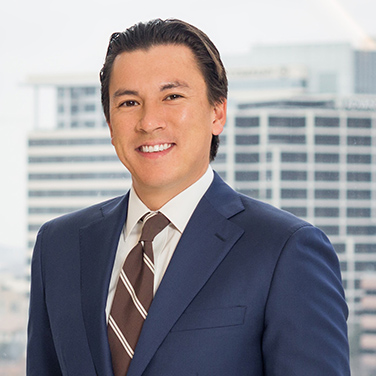By Lionel Schooler, David Schlottman, & Michael Drab
On June 6, 2022, the Supreme Court addressed two cases involving employment law issues. The Court’s significant opinion in Southwest Airlines Co. v. Saxon regarding the scope of the residual clause contained in Section 1 of the Federal Arbitration Act (FAA) garnered most of the headlines. But the Court also rejected a petition for review filed by Day & Zimmermann involving personal jurisdiction in federal question cases arising under the Fair Labor Standards Act (FLSA), leaving intact a ruling from the First Circuit that could have a significant impact on employer’s faced with FLSA lawsuits filed in that jurisdiction.
Southwest Airlines Co. v. Saxon
Employers often include arbitration clauses in their employment agreements. Such a clause limits an employee’s ability to pursue claims in court and before a jury, and that clause is often accompanied by a waiver of the right to pursue a collective action in a wage and hour lawsuit. Even so, an employer’s right to compel arbitration under federal law is restricted by the reach of the FAA, which does not “apply to contracts of employment of seamen, railroad employees, or any other class of workers engaged in foreign or interstate commerce.” 9 U.S.C. § 1.
The question in Saxon was whether employees who do not physically cross state lines but are involved in the loading and unloading of cargo that has been shipped in foreign or interstate commerce belong to a “class of workers engaged in foreign or interstate commerce” and, accordingly, cannot be compelled to arbitrate employment claims.
The case was filed by Latrice Saxon, a ramp supervisor employed by Southwest Airlines. Although Saxon was a supervisor, she alleged that she routinely filled in for ramp agents to assist in physically loading and unloading cargo to and from planes that crossed state lines. When Saxon sued Southwest for alleged violations of the FLSA, Southwest moved to compel arbitration under the employment agreement. Southwest generally argued cargo loaders, like Saxon, are not engaged in foreign or interstate commerce because the workers do not physically cross state lines. The district court sided with Southwest and compelled Saxon to arbitrate. The Seventh Circuit reversed, setting up a conflict with the Fifth Circuit on the issue. See Eastus v. ISS Facility Servs., 960 F.3d 207 (5th Cir. 2020) (holding a ticketing agent supervisor was not engaged in interstate commerce, even though she assisted in preparing cargo for transport across state lines). The Supreme Court largely agreed with the Seventh Circuit and affirmed.
The Supreme Court first held that the question of whether an employee is engaged in interstate commerce is an inquiry focusing upon the specific duties performed by the employee, not the general services provided by the employer. In other words, Southwest’s general involvement in interstate commerce does not mean all of its employees are involved in interstate commerce, and thus exempt from the FAA. Instead, courts must look to the actual duties performed by the employees at issue. Because Ms. Saxon alleged she frequently handled cargo – an allegation Southwest disputed – the Court found that she was exempt from the FAA, suggesting that courts must analyze the issue not only with respect to specific positions but also with respect to the particular duties performed by specific employees within a position. If, for example, another ramp supervisor’s actual job performance did not involve frequently handling cargo, they may still be subject to the FAA. Indeed, the Court specifically noted it was not ruling on the situation of a supervisor who does not handle bags.
The Court then turned toward determining whether a cargo loader is “engaged in foreign or interstate commerce” under the FAA. Rejecting Saxon’s argument that § 1 exempts all employees of major transportation providers, the Supreme Court held the specific act of loading and unloading cargo shipped across state lines does qualify as an act engaged in foreign or interstate commerce. The Court therefore concluded that Ms. Saxon could not be compelled to arbitrate her claims under the FAA. Southwest currently has a motion to compel pending before the district court, in which it argues that Ms. Saxon’s claims should be sent to arbitration under Illinois state law.
The Saxon opinion could have a significant impact on an employer’s ability to enforce arbitration clauses contained in employment agreements with employees in the transportation and shipping industries, to the extent they frequently handle cargo. Supervisors, like Saxon, with job descriptions that do not expressly include cargo-loading duties may nevertheless be exempt if the facts on the ground show the supervisor is routinely involved in loading and unloading cargo bound for foreign or interstate destinations. Still, arbitration agreements exempt under the FAA may be enforceable under state law.
Day & Zimmermann NPS, Inc. v. Waters
Sometimes, the Supreme Court contributes to litigation posturing by denying a petition rather than addressing a split in the circuits. That may be the case with Waters. Day & Zimmermann was sued in the First Circuit for alleged violations of the FLSA’s overtime provisions. Day & Zimmermann sought to limit its exposure to opt-in plaintiffs by invoking the personal jurisdiction rule laid out in Bristol-Myers Squibb, which held state courts lack personal jurisdiction over defendants on claims brought by out-of-state plaintiffs seeking redress for injuries that occurred outside the forum state.
The First Circuit held BMS does not apply because it addressed the Fourteenth Amendment constitutional limits on state courts exercising jurisdiction over state-law claims. See Waters v. Day & Zimmermann NPS, Inc., 23 F.4th 84 (1st Cir. 2022). Here, by contrast, Waters sued in federal court alleging violations of a federal statute. In this circumstance, the First Circuit reasoned, the relevant due process limitation is found in the Fifth Amendment, not the Fourteenth Amendment. This distinction significantly alters the jurisdictional inquiry. Under the Fourteenth Amendment, the question is whether the defendant has sufficient contacts with the forum state whereas under the Fifth Amendment the question is whether the defendant has sufficient contacts with the United States.
The employer argued the Fifth Amendment was irrelevant because Rule 4(k) of the Federal Rules of Civil Procedure “incorporates the Fourteenth Amendment’s limits on the jurisdiction of federal courts whenever a federal statute does not provide for nationwide service of process.” The First Circuit disagreed.
First, the court noted that Rule 4 is focused entirely on pre-service jurisdiction. Once summons has been properly served, Rule 4 becomes irrelevant to the personal jurisdiction issue. The court found support in Rule 82, which states “[t]hese rules do not extend or limit the jurisdiction of the district courts.” Moreover, reading Rule 4(k)(1)(A) as a limitation on the court’s jurisdiction over added plaintiffs, the court reasoned, avoided the fact that Rule 20’s joinder rules already govern that question. The court then held that limiting a court’s jurisdiction over out-of-state plaintiffs under Rule 4 would frustrate the broad remedial purposes of the FLSA. Finally the court distinguished contrary rulings by the Sixth and Eighth Circuits.
The Supreme Court’s rejection of Day & Zimmermann’s petition places employers in a rough position if they are sued in the First Circuit for alleged FLSA violations. Plaintiffs from all over the country could potentially opt in even if they never worked for the employer in Massachusetts, were never paid in Massachusetts, and have never even been to Massachusetts.
As the First Circuit noted, the Sixth and Eighth Circuits have addressed this issue and concluded BMS does apply to lawsuits filed under the FLSA, meaning out-of-state plaintiffs complaining about out-of-state conduct cannot opt-in to an FLSA lawsuit. See Canaday v. Anthem Cos., 9 F.4th 392 (6th Cir. 2021); Vallone v. CJS Sol. Grp., LLC, 9 F.4th 861 (8th Cir. 2021). Given this Circuit split, it is only a matter of time before the Supreme Court addresses the issue.
Finally, an important point to note is that district courts retain considerable discretion in determining whether a class may be certified under the FLSA and in defining the scope of the class for purposes of serving notice of eligibility for opting in to the class. The decision in Waters relates only to the existence of personal jurisdiction over out-of-state employees, it does not alter a court’s assessment over whether certification of a class under the FLSA should include out of state employees.
Meet Our Team
Lionel M. Schooler is a management-side employment lawyer and recognized authority on employment law, federal appellate practice, and arbitration. Lonnie has more than 45 years of experience in handling workplace matters. He previously served as Chair of the Houston Bar Associations’ Labor & Employment Section, and has been a frequent speaker and author on employment-related matters.
David Schlottman is an adviser and litigator who handles complex cases involving employees, the workplace, and related business disputes. He has wide-ranging experience related to wage-and-hour issues, employee competition, theft of trade secrets, contract claims, compensation disputes, employment discrimination and retaliation, and union-related disputes. David regularly speaks on wage-and-hour issues and employment litigation, and served as a contributor to the treatise Employment Discrimination Law published by the American Bar Association’s Section of Labor & Employment Law.
Michael A. Drab focuses on resolving disputes for employers and businesses. He has worked on cases involving breach of post-employment restrictive covenants, collective action wage and hour disputes arising under the Fair Labor Standards Act, and discrimination cases filed under Title VII of the Civil Rights Act. Michael previously served as a judicial law clerk to the Honorable Andrew M. Edison in the Southern District of Texas, as a consumer protection law clerk for the Texas Attorney General, and as a law clerk for Disability Rights Texas.
The opinions expressed are those of the authors and do not necessarily reflect the views of the firm, its clients, or any of its or their respective affiliates. This article is for informational purposes only and does not constitute legal advice.


